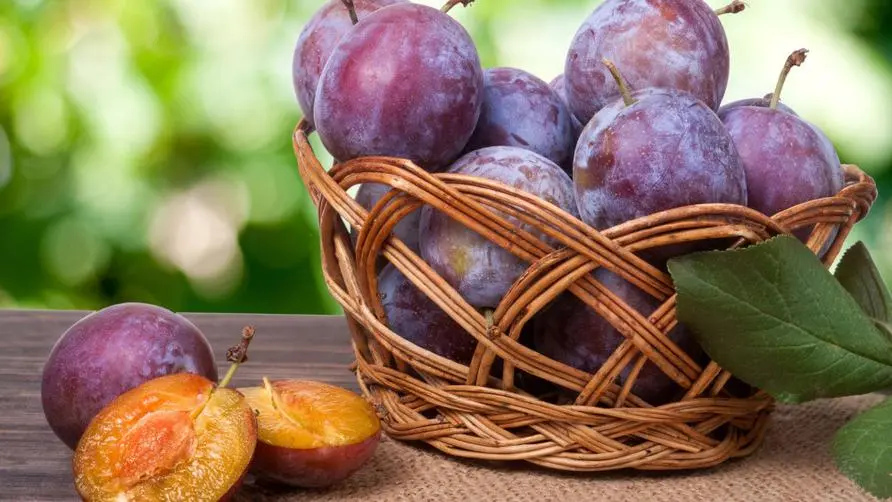Eating plums can actually help lower blood pressure? Research confirms: "1 ingredient" can bring 4 major benefits to the body

Cardiovascular disease is currently the number one risk factor for death in the world, among which “hypertension” affects the safety of 1.3 billion people. People with hypertension are more likely to face the risk of serious cardiovascular disease. However, a recent study published in “Hypertension Research” found that plums, a common fruit in Taiwan, are rich in antioxidants and may help reduce the risk of hypertension.
Can eating plums help control blood pressure? Animal experiments confirm that it has the potential to prevent high blood pressure
A research team from Temple University in the United States used mouse model testing and analysis to explore the potential cardiovascular benefits of plums and plum juice concentrate (bainiku-ekisu). The research team first injected “Angiotensin II (Ang II)” into mice to induce hypertension; then divided the mice into two groups: the experimental group was fed plum juice concentrate, and the control group was fed only Plain water.
After 2 weeks of data analysis, it was found that the medial aorta of the control group was hypertrophied; in the experimental group of mice that consumed plum concentrate, the hypertrophy of the medial aorta was somewhat reduced, and there was no high blood pressure. The study also found that plum juice concentrate modestly reduced the number of immune cells, which are often important contributors to inflammation associated with high blood pressure.
Dr. Eguchi Satoru, one of the authors of the study, said that plums have the effect of preventing cells from switching from “aerobic metabolism” to “glycolysis.” This phenomenon is common in patients with hypertension. In addition, the chemical components in plums can protect the human body from “oxidative stress” reaction. Oxidative stress reaction is one of the risk factors that causes inflammation, hardening of blood vessels, and leads to serious cardiovascular diseases.
Eguchi Satoru believes that this animal test shows that plums may have the potential to lower the blood pressure of patients with hypertension and prevent complications related to hypertension, such as myocardial infarction, stroke, etc. However, he also emphasized that animal experiments do not always accurately reflect the complex cardiovascular pathology of humans, so human trials with larger samples must be included in the future to confirm the cardiovascular benefits of plums.
Not only does it have the potential to lower blood pressure! Eating more plums can also bring “4 benefits”
Plums and their processed products have been widely used in Chinese or Japanese food, especially in Japan. In fact, the health benefits of plums have been confirmed by many studies. If they can be added appropriately to the daily diet, they may bring the following benefits:
Help gastrointestinal digestion. Research in the “World Journal of Gastroenterology” shows that eating plums may help improve digestive problems, especially for people with gastroesophageal reflux problems. Moderate consumption can improve symptoms to a certain extent.
Prevent gastrointestinal diseases. “Molecular Nutrition & Food Research” research points out that dietary intervention based on frozen plums has a protective effect on gastrointestinal diseases such as inflammatory bowel disease (IBD) and ulcerative colitis (UC). Research suggests that this phenomenon may be related to the antioxidant and anti-inflammatory properties of plums.
Anti-allergic effect. “Scientific Reports” published a study stating that allowing mice to consume food containing Japanese plum ingredients can reduce allergic reactions in mice with “immunoglobulin E” (IgE) sensitization. Research shows that plums contain at least 5 compounds that can inhibit allergenic substances mediated by IgE.
Reduce the risk of obesity. Research also published in “Scientific Reports” believes that plums have natural antioxidant and anti-inflammatory properties, which can help alleviate chronic inflammation caused by obesity.
The public is reminded that even though eating plums has the above-mentioned potential benefits, because plums contain high levels of fruit acid, excessive intake will cause stomach discomfort, so they should still be eaten in moderation. In addition, unripe plums contain hydrocyanic acid. Excessive consumption may cause symptoms such as nausea, vomiting, dizziness, and heart palpitations. Therefore, when eating, you should mainly eat plums that are ripe and slightly soft to avoid affecting the body.
Source:
Further reading:





